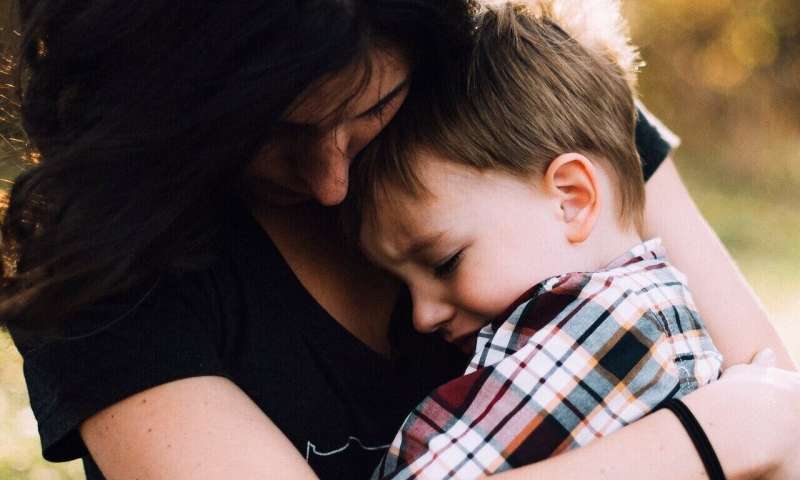Beyond DNA: The Complex Story of Trauma and Its Transgenerational Effects

New scientific insights reveal that trauma's impact is shaped by an intricate interplay of biology, environment, and culture, challenging long-held beliefs about genetic inheritance of trauma effects.
Recent scientific insights challenge the long-held belief that trauma is directly encoded in our DNA. While previous notions suggested that traumatic experiences might leave permanent marks within our genetic material, new research reveals a far more nuanced picture. Trauma and its effects are shaped by a dynamic interplay of biological, environmental, and cultural factors, rather than being hardwired into our genes.
A key concept in understanding this process is phenotypic plasticity—the ability of organisms to develop different traits from the same genetic code based on environmental influences. For example, animals like honeybees exhibit different roles—queen or worker—depending on their diet during development, despite identical genetics. Similarly, in humans, early-life conditions such as safety, stress, and caregiving influence how genes are expressed, affecting traits like stress sensitivity or body shape through mechanisms like epigenetics.
Epigenetics involves chemical modifications to DNA that alter gene activity without changing the underlying sequence. These modifications act like instructions or notes guiding gene expression in response to environmental exposures, such as trauma, nutrition, or caregiving. Importantly, many epigenetic changes are flexible and can shift with changing circumstances, especially in early childhood. Studies show that patterns linked to early adversity can vary depending on subsequent environments, indicating that trauma’s biological imprint isn’t fixed.
Furthermore, trauma influences the body through factors beyond DNA—such as hormone regulation, immune function, and in-utero conditions—all of which shape brain development and stress responses.
Phenotypic plasticity is widespread across nature. Examples include how fish exposed to predators develop different stress responses, or how identical fruit fly larvae grow into diverse reproductive roles based on their diet. In humans, early-life experiences and environmental factors continue to influence development in complex ways. Research on animal models demonstrates that traits impacted by diet in one generation may not persist into the next, highlighting the unpredictable nature of transgenerational effects.
While epigenetic modifications are often associated with environmental exposures, they are not permanent scars. These changes are dynamic and can adapt as environments change, emphasizing the importance of supportive environments in mitigating trauma effects. Cultural connections and social support also play critical roles; for instance, programs rooted in land, language, and kinship in New Zealand or rituals among Holocaust survivors help buffer psychological burdens and can influence biological processes.
This reinterpretation of trauma inheritance shifts the perspective from viewing it as a fixed genetic fate to understanding it as a flexible, context-dependent response. When we consider the influence of environment, caregiving, and culture, it becomes clear that the potential for healing and resilience is ever-present. Our biology is in ongoing dialogue with our surroundings, and by fostering supportive environments, we can disrupt harmful cycles of trauma transmission.
Understanding trauma through this lens offers hope: it underscores that change is possible and that recovery is rooted in the intricate, adaptable nature of human biology and society.
Source: https://medicalxpress.com/news/2025-07-trauma-dna-science-reveals-complicated.html
Stay Updated with Mia's Feed
Get the latest health & wellness insights delivered straight to your inbox.
Related Articles
Enhancing Brain Health in Early Dementia with Game-Based Training
Recent studies show that game-based training using exergames can improve memory and induce brain structural changes in individuals with early signs of dementia, offering hope for non-drug interventions to slow disease progression.
Impact of Parental Mental Health on Children: Understanding the Link
Recent research reveals strong links between parental mental health struggles and their impact on children's psychological well-being, emphasizing the importance of family-centered mental health support.
Rising Trend of Firearm Suicides Among Older Women Raises Concerns
A new study reveals a concerning rise in firearm suicides among older women, highlighting the need for targeted mental health and firearm safety interventions.
The Impact of Parenthood on Mental Health: Insights from Recent Research
New studies reveal that having children can positively influence mental health and life satisfaction, but social and economic factors significantly shape these outcomes. Understand the latest insights into parenthood and mental well-being.



